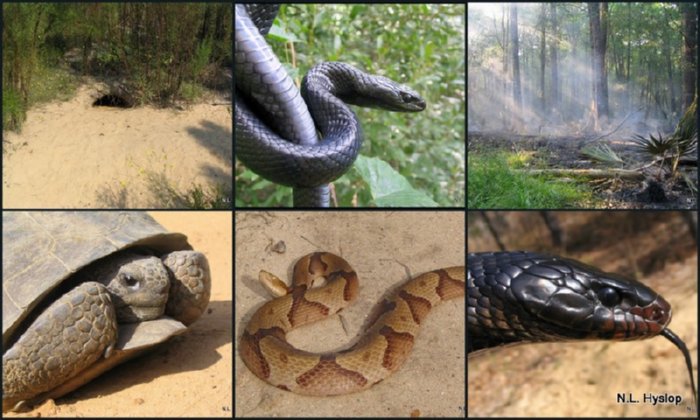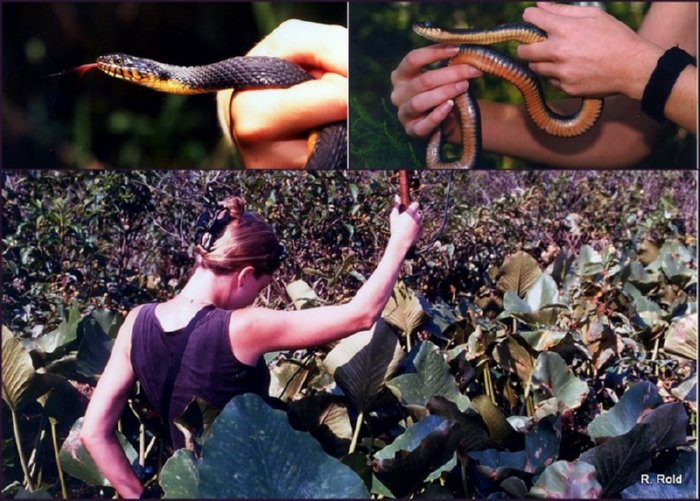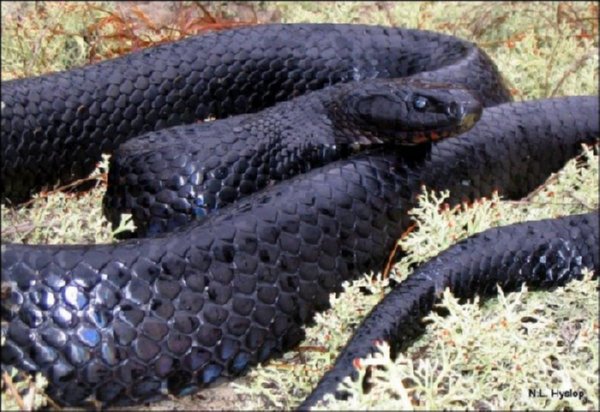Research
Population
ecology of the Eastern
Indigo Snake (Drymarchon couperi)
The Eastern Indigo Snake… “is perfectly harmless, frequenting the neighborhood of settlements, where it is usually unmolested, from its inoffensive character, and the prevalent belief that it destroys the Rattlesnake, which it attacks with courage… Although a harmless snake, it is a bold one, and when provoked, it faces its enemy with courage, vibrating its tail rapidly” (J. Hamilton Couper as quoted in Holbrook 1842).
Project
at
the
University of Florida under the direction of Dr. Madan Oli and funded
by Project Orianne. Collaborative work
with Project Orianne (including Dirk Stevenson), Fort Stewart,
independent biologists, and
the University of Florida.
. .
The landscape throughout much of the Big Cypress National Preserve (BCNP), a >700,000 acre multi-use natural area north and adjacent to Everglades National Park, contains roundish wetlands referred to as "cypress domes". These cypress domes are embedded in matrix habitat types, ranging from slash-pine rocklands to cypress prairie, present a unique opportunity to ask questions regarding drivers of community ecology in a naturally patchy landscape.
.
.
Ecology
and Conservation of the Eastern Indigo Snake
For my
doctoral research, I conducted a two-year radiotelemetry study on D.
couperi in southeastern Georgia.
·
Fort Stewart Studies Garbage Can Snake
·
Fort Stewart Studies the
Threatened Eastern Indigo Snake
. .
I completed
this project for my master's research, which I conducted in
northwestern Kentucky in fragmented wetlands along streams near the
Ohio River.



